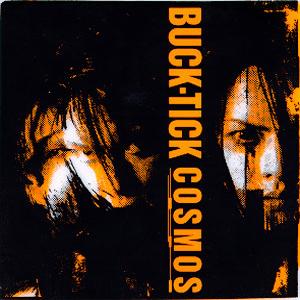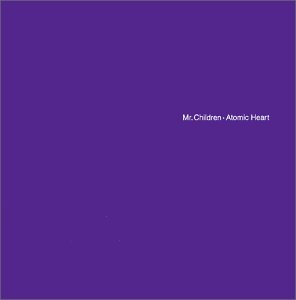Mr. Children, commonly referred to by their contracted nickname "Misu-Chiru" (ミスチル), are a Japanese pop rock band formed in 1989. Consisting of Kazutoshi Sakurai, Kenichi Tahara, Keisuke Nakagawa, and Hideya Suzuki, they made their major label debut in 1992. They are one of the best selling artists in Japan and one of the most successful Japanese rock artists, having sold over 75 million records and creating the "Mis-chil Phenomenon" (ミスチル現象) in the mid-1990s in Japan. They held the record for the highest first week sales of a single in Japan for 15 years, with 1.2 million copies of their 10th single "Namonaki Uta" (名もなき詩), have 30 consecutive number 1 singles, replaced Glay as the all-male band to have the most number 1 albums on the Oricon charts, and won the Japan Record Award in 1994 for "Innocent World" and in 2004 for "Sign". As of 2012, Mr. Children has published fifteen original studio albums and 34 physical singles, along with five compilations, a live album, and fifteen home video releases.

Six/Nine is the eighth studio album by the Japanese rock band Buck-Tick. It was released in a clear purple case on May 15, 1995, through Victor Entertainment. It peaked at number one on the Oricon chart. It was certified gold in the same month and sold over 240,760 copies in the first year. Issay provides vocals for "Itoshi no Rock Star". "Rakuen " caused controversy because some of the lyrics were lifted from the Quran and later the album was re-issued with the offending part removed by November 1995 in a clear case. The album was digitally remastered and re-released on September 19, 2002, with a bonus track. The album remastered once again and released on September 5, 2007, in a clear red case.

Hurry Up Mode is the debut studio album by the Japanese rock band Buck-Tick. It was released on both vinyl and CD on April 4, 1987 through Taiyo Records with the catalog number LEO 009. The CD version had two bonus tracks, "Vacuum Dream" and "No-No-Boy". It was later remixed and re-released in 1990, excluding the two bonus tracks. "Moonlight" was later re-recorded again for their 1992 compilation album Koroshi no Shirabe: This Is Not Greatest Hits. The album peaked at number one on the Japanese Indie Albums chart. The remix version was placed 1st on the Oricon albums chart, selling 212,430 copies.

Darker Than Darkness -Style 93- is the seventh studio album by the Japanese rock band Buck-Tick. It was released on June 23, 1993 through Victor Entertainment. The album peaked at number two on the Oricon chart, became a certified gold seller by July 1993, and subsequently sold 213,260 copies. Darker Than Darkness -Style 93- was digitally remastered and re-released on September 19, 2002, with two bonus tracks. It was remastered and re-released again on September 5, 2007. "Dress" was remixed and used as the opening theme for the anime Trinity Blood (2005), this version was also released as a single. The album was named one of the top albums from 1989−1998 in a 2004 issue of the music magazine Band Yarouze.

Cosmos is the ninth studio album by the Japanese rock band Buck-Tick. The album was released on June 21, 1996, through Victor Entertainment. It was the group's last album released through Victor and peaked at number six on the Oricon charts. Cosmos has sold 130,000 copies within two weeks. The album was digitally remastered and re-released on September 19, 2002, with two bonus tracks. It was remastered and re-released again on September 5, 2007. The song "Tight Rope" was later re-recorded as the b-side to the group's "Alice in Wonder Underground" single in 2007, and "Sane" was re-recorded in 2012 for their "Elise no Tame ni" single. The album was heavily influenced by electronic music, as the band started gravitating towards cyberpunk music.

Shinkai (深海) is the 5th studio album recorded by Japanese rock band Mr. Children, released in June 1996 under the record label Toy's Factory.

Atomic Heart is the fourth studio album by Japanese rock band Mr. Children, released in September 1994. The album features two successful lead singles "Cross Road" and "Innocent World".

Versus is the third, and second full-length album, by Japanese rock band Mr. Children released on September 1, 1993. The album debuted on the Japanese Oricon music charts at #3 and sold 802,140 copies during its run on the chart. Just like the previous two albums, Versus contains only one single released on July 1, 1993, titled "Replay" with another album track "And I close to you" also being included in Mr. Children's fourth single "Cross Road". Versus also marked the first time use of Takeshi Kobayashi as a writer and composer for Mr. Children.

Kind of Love is the first long-play record by Japanese rock band Mr. Children The album was issued in December 1992, only 7 months after the release of their debut EP entitled Everything. It has commonly been regarded as the band's second studio album.

Tenshi no Revolver is the fifteenth studio album by Japanese rock band Buck-Tick. It was released on September 19, 2007, through BMG Records. The limited edition came with a DVD of the music videos for the singles "Rendezvous" and "Alice in Wonder Underground". Tenshi no Revolver peaked at number five on the Oricon chart with 23,114 copies sold. For the album Buck-Tick went for a "band sound," the sound of an ordinary straight rock band.

Koroshi no Shirabe: This Is Not Greatest Hits is the first compilation album released by the Japanese rock band Buck-Tick. It was released on cassette and CD on March 21, 1992 through Victor Entertainment. All of the tracks on the compilation were re-recorded and contain different musical arrangements, because of this some argue that it is a studio or remix album. The album was digitally remastered and re-released on September 19, 2002, with a bonus track. It was remastered and re-released again on September 5, 2007. Koroshi no Shirabe: This Is Not Greatest Hits peaked at number one on the Oricon charts. It was certified gold in April 1992 has sold 340,000 copies worldwide since.
Kimi ga Ita Natsu is the first, and debut, single released by Mr. Children on August 21, 1992.
Dakishimetai (抱きしめたい) is the second single released by Mr. Children on December 1, 1992.
"Replay" is the third single released by Mr. Children on July 1, 1993.
"Cross Road" is the fourth single released by Mr. Children on November 10, 1993.
"Innocent World" is the fifth single released by Mr. Children on June 1, 1994.
"Tomorrow Never Knows" is the sixth single released by Mr. Children on November 10, 1994. The single sold 2.766 million copies and is the eighth-highest-selling single in Japan in the Oricon history.
"Everybody Goes " is the seventh single released by Mr. Children on December 12, 1994.
The discography of Salyu consists of three studio albums, one compilations album, and 14 solo singles, four collaboration singles and one DVD. Out of her releases, her 2007 album Terminal is her most successful, being certified gold by the RIAJ.

(An Imitation) Blood Orange is the fifteenth studio album by Japanese pop rock band Mr. Children and was released on November 28, 2012. It was the band's first studio album in two years. The album consists of a total of 11 tracks, including their triple A-side single, "Inori: Namida no Kidou" / "End of the Day" / "Pieces", released in April 2012, as well as "Hypnosis". "Joutoku" was used as the theme song for Ikuta Toma's drama Osozaki no Himawari: Boku no Jinsei, Renewal and their charity digital single "Kazoe Uta", released in April 2011, for victims of the 2011 Tōhoku earthquake and tsunami. This album was released in two versions: a limited CD+DVD edition and a regular CD-only edition, but the same price. The limited edition comes with a DVD including the PVs for "Hypnosis", "Marshmallow Day", "Inori: Namida no Kidou", and "Joutoku".











